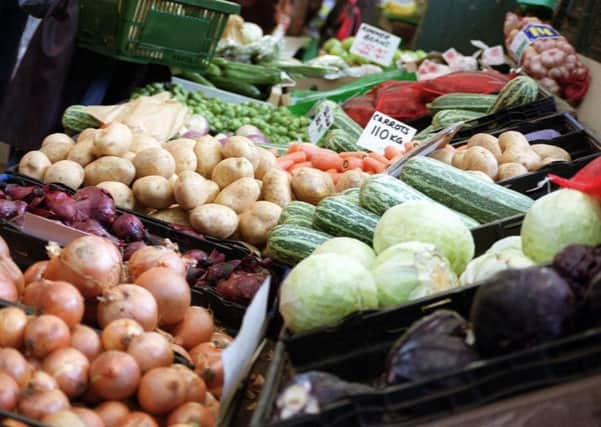Farmers want retailers to be flexible to avoid wonky food going to waste


Investment in marketing ‘wonky’ produce has a key role in helping farms overcome testing growing conditions, as well as helping to reduce food waste, farming official Andrew Clark said.
As reported in The Yorkshire Post, a new study by Edinburgh University shows that more than 50m tonnes of fruit and veg grown across Europe each year is discarded due to its appearance.
Advertisement
Hide AdAdvertisement
Hide AdAnd with the recent dry weather having stunted growth, more wonky produce is being harvested this year.
Talks have been ongoing between agricultural leaders and retailers about the driest start to a British summer for 57 years and its impact on the quality and abundance of crops.
The conditions have left farmers concerned about the potential for incurring financial penalties when their produce does not meet strict specifications demanded by retailers.
Broccoli growers are among those whose crops have been badly affected, the Brassica Growers Association said. Plants have been very small, meaning two heads have been used per pack to achieve the same weight.
Advertisement
Hide AdAdvertisement
Hide AdThis means yields have been halved and labour costs doubled as extra staff have to be employed to weigh and put two heads together in packs.
The need for flexibility to ensure food is not wasted - whatever its appearance - is needed right across the retail sector, said Mr Clark, policy director of the National Farmers’ Union.
“It is important that retail buyers apply flexibility to food specifications and promotions in order to utilise as much of the crop as possible, and to manage fluctuations in supply and demand.
“It costs just as much to produce wonky fruit and veg as a perfect one, so special ranges that utilise this crop can be part of the solution to address the food waste challenge, especially during the dry hot summer we’re experiencing.”
Advertisement
Hide AdAdvertisement
Hide AdA number of major food retailers have compromised on the appearance of fruit and veg by running new lines and promotions in stores.
Britain’s largest supermarket chain, Tesco, was the first UK supermarket to sell green-skinned satsumas, clementines and lemons to cut down on food waste.
A spokesperson for Tesco said: “During the recent spell of hot weather, we worked with our British growers to ensure we took as much of the crop as possible while still providing the great quality and taste our customers expect.”
Bradford-based Morrisons offers at least 33 different varieties of wonky produce a year.
Advertisement
Hide AdAdvertisement
Hide AdA spokesperson for the retailer said: “We currently sell around 500 tonnes a week of wonky fruit and veg and we will continue to grow and collaborate with farmers to increase the range and volume we sell to reduce food waste.”
Mr Clark urged all retailers to find ways of using misshapen produce from this year’s harvest, saying: “Flexible solutions avoid produce being wasted and enables more of what is perfectly edible food to be sold to the British public. These solutions are most successful when farmers and retailers have an open and transparent relationship.”
